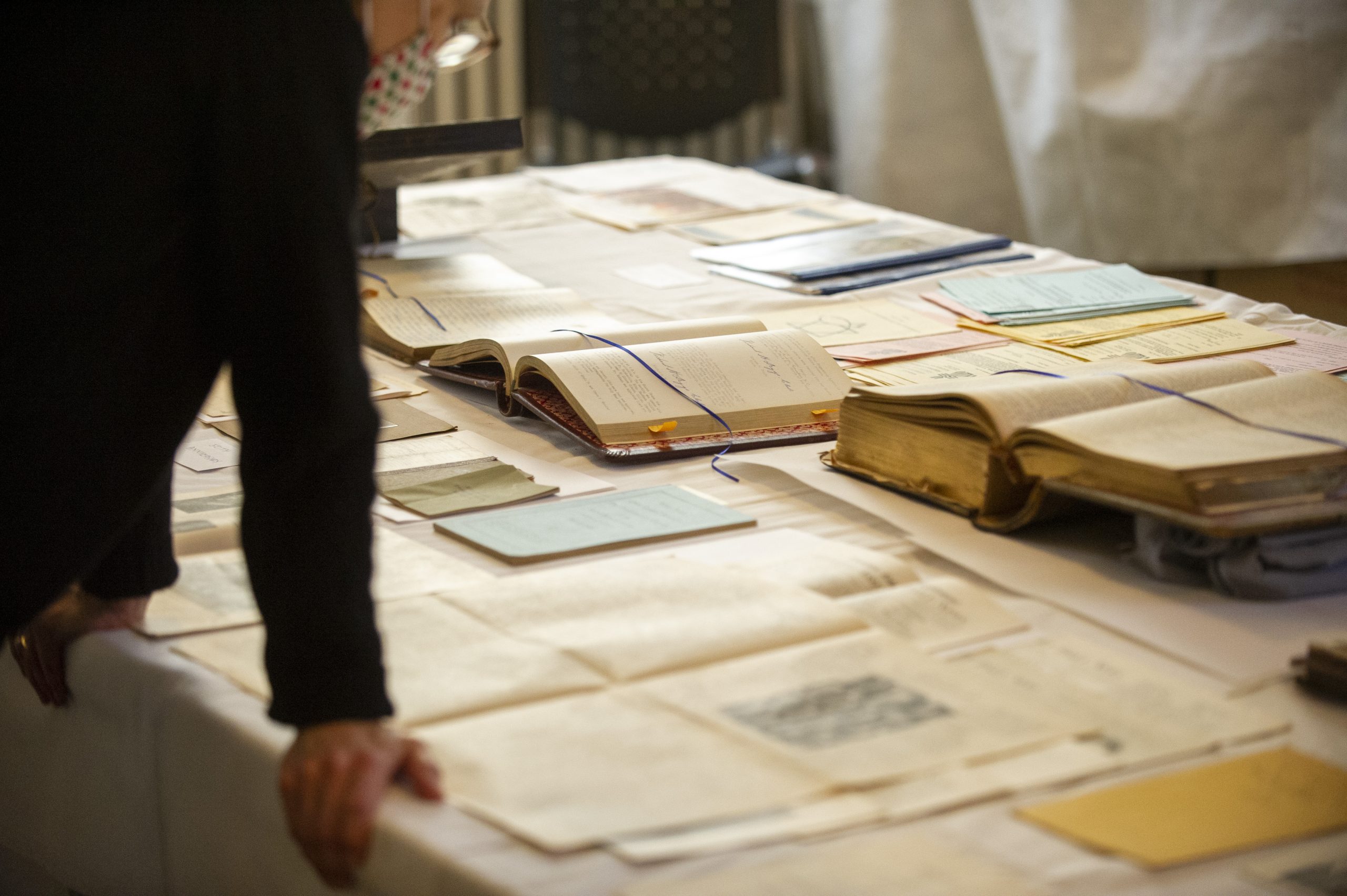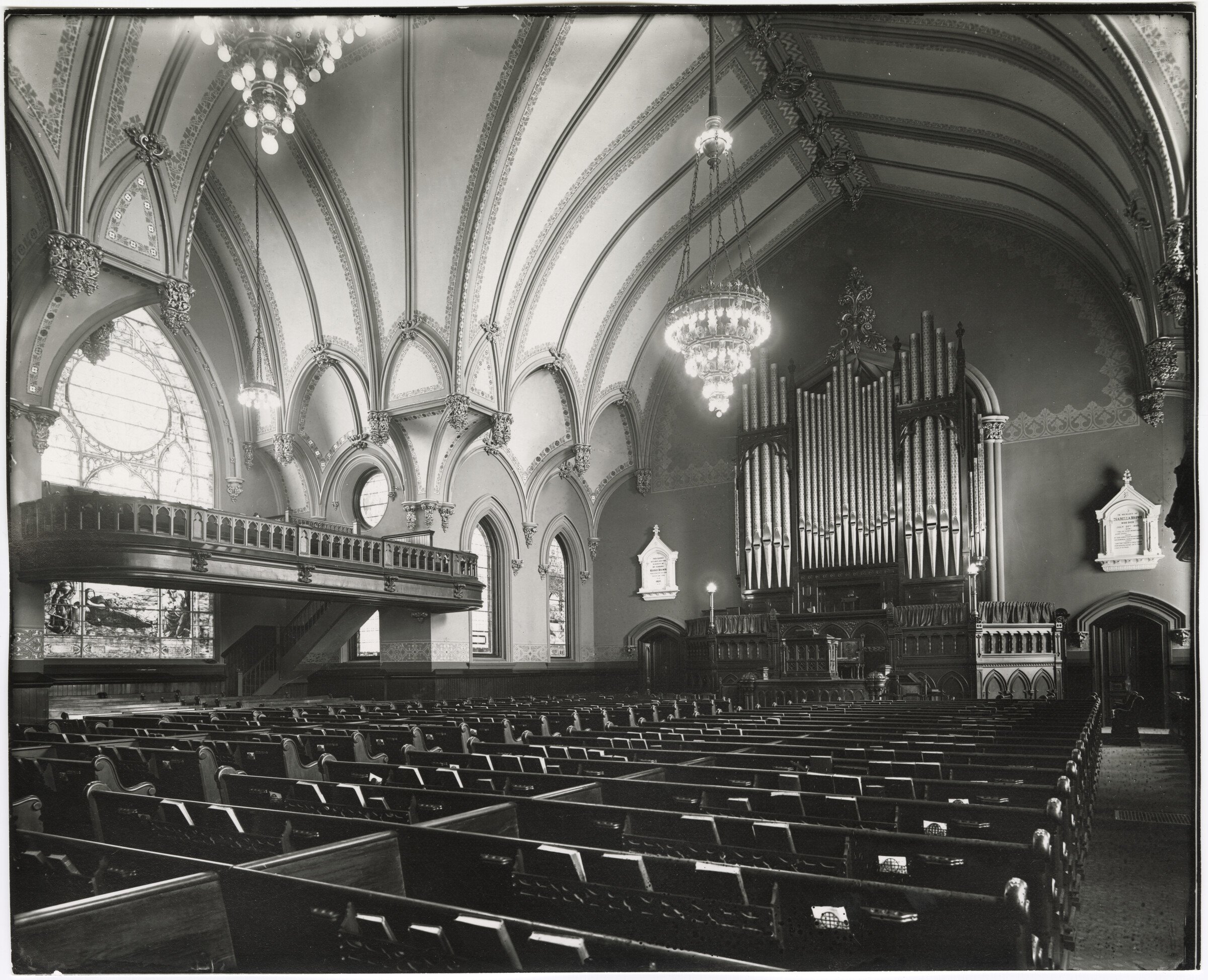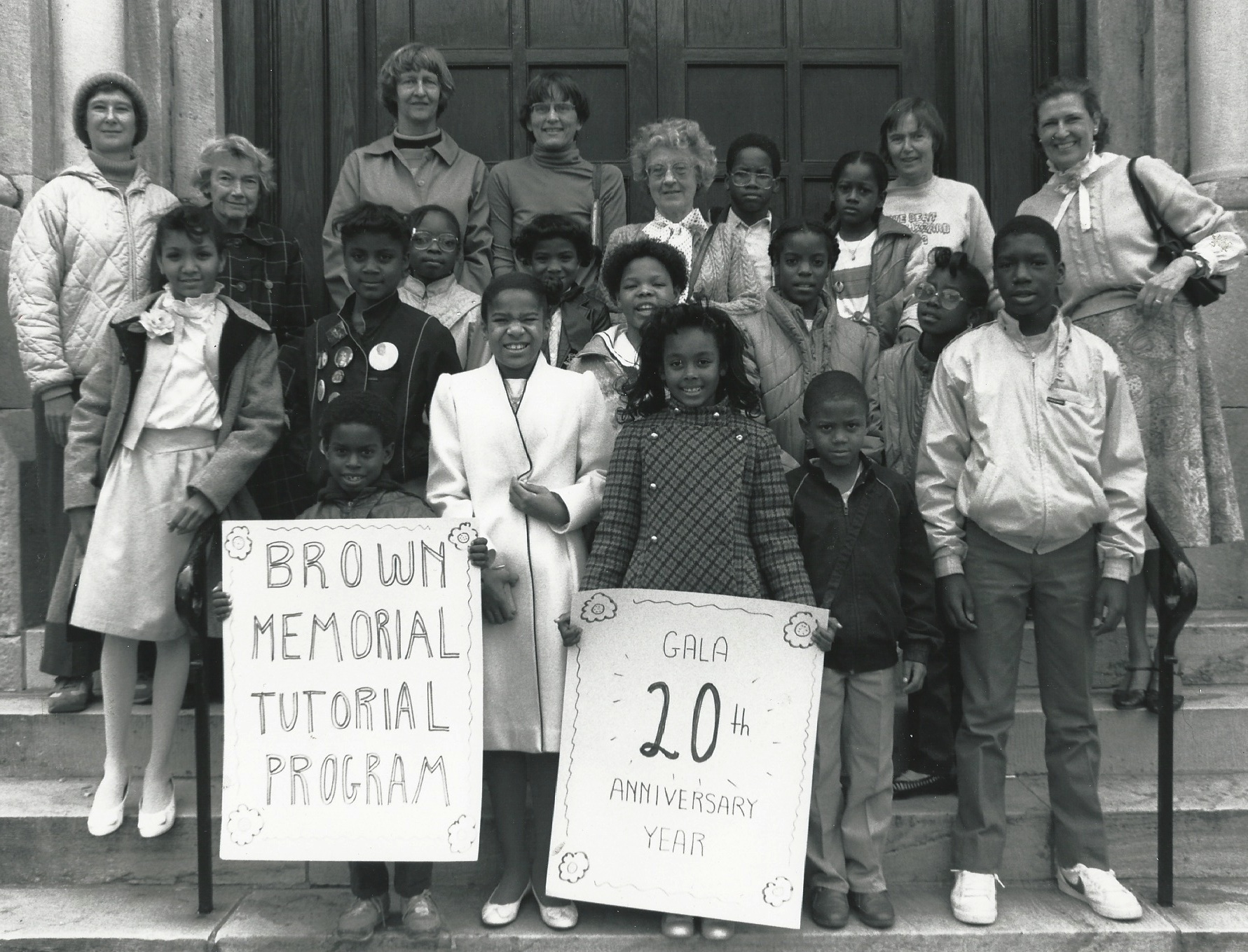Brown Memorial Presbyterian Church was founded in 1869 when Isabella Brown gave $150,000 in memory of her husband George Brown, a son of Alex Brown, the founder of the first investment banking firm in the United States. The church was built in the new, northern neighborhood of Bolton Hill, featuring some of Baltimore’s finest row houses. In those days, founding a new church was as easy as building a new house in the neighborhood.
The church weathered more than a few storms in Baltimore’s history to become the thriving, urban, progressive community of faith that we are today. We believe that faith is best built on a foundation of intellectual curiosity, and spiritual openness to a diversity of ideas and people who hold them. Committed to building one community out of the raw material of our city’s many divisions, our justice-oriented church strives to live out our faith, beginning with the warm and welcoming culture that we strive to create together.
A few threads of our history woven into our identity include:

Exploring Brown archives during the 150th Anniversary Celebration
In the early 1930s, some of the church’s most significant architectural features were added to the already impressive worship space, including the largest collection of Tiffany stained glass windows anywhere in the world outside of a museum, a chancel designed by noted architect Ralph Adams Cram, and a Skinner organ. Today we draw on the best of our historic musical and liturgical tradition to inspire, and deepen, our sense of awe in the presence of God.
In 1963, Brown’s pastor and several church members were arrested in the forced desegregation of Gwynn Oak Park. The actions of the church were not surprising to anyone who knew the church. A decade earlier, the church founded the second racially integrated nursery school program in the city (now the independently operated Bolton Hill Nursery School), followed by a tutoring program that still operates today. From its earliest days when the church boasted of giving more than half its annual budget to “benevolences,” the church understood that the gospel is a public, relational endeavor. Today, we believe God is calling us to continue to deepen our internal diversity, even as we persist in work for justice and healing across many divides that we encounter in the city we love.
A sharp period of middle-class flight, beginning in the late 1950s, shaped the church’s identity in new and significant ways. As Baltimore’s population decline accelerated and, with it, Brown’s membership, the church opened a second location and operated as “one church in two locations” for more than 10 years. Then a church vote in 1979 forced an amicable split between the northern Baltimore County location (Brown Memorial Woodbrook) and the city church. The city congregation was tiny in comparison to the peak of 1,300 members in 1952, but its people believed God had called them to this corner in this time and place in Baltimore City, precisely in the midst of racial and class division, fear and decline. God’s call would be sufficient. Listening for God’s call, especially in the midst of challenge, continues to shape our life together as community.

Brown Memorial interior, circa 1910, Image by the Hughes Company
The fledgling congregation developed a creative, experimental posture, still rooted in its history of musical excellence and love of the Reformed theological tradition. During this period, the church opened a community center, joined BUILD – a church-based, citizens’ power organization rooted in the black church – and deepened its historic relationships with Baltimore’s vibrant Jewish community. A relationship with an El Salvador congregation, formed in the crucible of that country’s civil war, still endures today. Later, a new partnership with congregations on the Dakota reservations took root. In the early 1990s, the congregation became a More Light Church, publicly affirming the gifts of LGBTQ+ Christians and signaling the church’s ongoing commitment to be a welcoming church.
Brown believes in fulfilling the promises we all make in baptism to help raise each child in the Christian faith. We invest in children, youth and their families through efforts like:
In the midst of growing secularism, Brown prides itself in articulating the Christian faith in the inclusive spirit of the Jesus who brought a diverse people together, including those outcast in his day. In our worship and life together, we look to the traditions of the past to craft a faith with deep roots, while drawing on the creative, experimental spirit that gave the church new life in challenging times. We believe that healthy community is as diverse as the city where we live. We face the future with joy, hope and an expectation born of the knowledge that each time we have engaged the challenges of our times, God has blessed our congregation.

Brown celebrates the 20th anniversary of the Tutoring Program in the early 1970s, our oldest mission